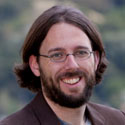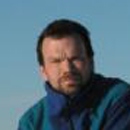Advisory Board and Editors Climate Change Biology

Armando Sunny
Dr. Armando Sunny is a Researcher and Professor within the Applied Biological Sciences Research Center, Science Faculty at the Autonomous University of the State of Mexico (UAEM).
He is interested to know how certain features of the landscape affect the genetic diversity and structure of species in anthropized environments, for this he performs analysis of landscape genetics, population genetics, niche modeling, SIG, landscape connectivity and global change analysis, especially in amphibians and reptiles.

Yanhong Tang
Current: Chair Professor/Dean, Department of Ecology, College of Urban and Environmental Sciences, Peking University, China.
Past: Senior (Principle) Researcher, National Institute for Environmental Studies, Japan

Jonathan D Tonkin
My research is focused around what promotes and maintains biodiversity at a range of spatial scales. Much of my work focuses on stream ecosystems, but my interests are question focused, not system specific. While my central interest lies in disentangling the mechanisms that structure metacommunities, I also tackle questions ranging from local to global, and from community ecology through to macroecology. I focus on a variety of basic ecological concepts and processes, including linkages between disturbance, productivity and diversity, biodiversity loss, ecosystem function, dispersal, and community assembly. I also aim to tackle applied ecological issues such as global change, land-use change, river regulation, and restoration, with the goal of applying ecological theory to effectively manage threatened ecosystems. My current research ties these issues together into the following three main themes: 1) Metacommunity ecology; 2) Global change ecology and macroecology; and 3) Restoration ecology. In light of these three themes, I am particularly focusing on the unique hierarchical and dendritic structure of river networks, and how this structure influences the biodiversity patterns of river communities.

Andrew Tredennick
I am a quantitative ecologist interested in ecological forecasting and the stability of populations, communities, and ecosystems. I have expertise in statistical analyses of ecological systems, population modeling, and the analysis of remote sensing data to address environmental problems.

Piotr Tryjanowski
Professor of Biology and Director of the Institute of Zoology PULS. Previously at Adam Mickiewicz University Poznan.
Research interests: behavioural ecology, climate impact, farmland birds, urban ecology.

Giorgio Vacchiano
MA and PhD in forestry at University of Turin. Assistant professor in forest management and planning at University of Milan

Jianjun Wang
Dr. Jianjun Wang is Professor of Nanjing Institute of Geography and Limnology, Chinese Academy of Sciences. He studies microbial biogeography and global change. His main topics are related to the questions on how microbial diversity and community composition varied within Earth’s surface and subsurface, especially aquatic environments. He is using self-obtained large microbial data sets, in-situ experiments, as well as modeling methods to achieve these answers.

Tom Webb
Royal Society University Research Fellow in the Department of Animal & Plant Sciences, University of Sheffield, UK. Marine macroecologist, interested in applying computational methods to mobilise data and to visualise and analyse the distribution and dynamics of marine biodiversity at large spatial scales.

Ethan P White
Associate Professor in the Department of Wildlife Ecology and Conservation at the University of Florida. Moore Foundation Investigator in Data-Driven Discovery. National Science Foundation CAREER 'Young Investigators' Award recipient. Member of the Data Carpentry and Impactstory boards of directors.
My research focuses on data-intensive questions in ecology, using large ecological datasets, advanced statistical/machine learning methods, and theoretical modeling to understand ecological patterns.

Chris M Yeager
I am a broadly-trained microbiologist with a research background in molecular biology, microbial ecology, genomics and biogeochemistry. Over the past 12 years I have served as a Staff Scientist within the Department of Energy National Laboratory system, first in the Environmental Biotechnology Section at Savannah River National Laboratory (2005-2011) and then in the Biosciences and Chemistry Divisions at Los Alamos National Laboratory (2011-current). As a staff scientist, I developed and managed a variety of research programs, focusing on microbial communities involved in processes relevant to climate change, fate and transport of radionuclides in the environment and bioenergy production. I received a BS degree from the University of Wyoming in Biochemistry, after which I worked as a laboratory technologist at the University of Utah and the VA medical center in Salt Lake City, UT with a team investigating the molecular underpinnings of diabetes. I received my doctorate in Cellular and Molecular Biology at Oregon State University in 2001 under Drs. Daniel Arp and Peter Bottomley investigating biodegradation of toxic compounds, such as trichloroethylene and toluene, by soil microorganisms. I completed postdoctoral training (2001-2004) at Los Alamos National Laboratory under Dr. Cheryl Kuske examining how the microorganisms that build and maintain biocrusts in soils of arid environments might respond to climate change.

Nigel G. Yoccoz
Professor of Statistical Ecology at the Institute of Arctic and Marine Biology of UiT The Arctic University of Norway since 2003. Associate Editor of "Methods in Ecology and Evolution", "Ecography" and "Wildlife Biology", and former associate editors of Ecology and Ecology Letters.

Mark T Young
’m a Scottish evolutionary biologist and vertebrate palaeontologist. My research focus is on major evolutionary transitions: understanding both how and why the vertebrate body-plan radically transforms when adapting to new niches. My interdisciplinary approach including biomechanics, comparative anatomy, neuroanatomy, nomenclature, philosophy of biology, phylogenetics, and systematics/taxonomy.
My areas of research are:
(1) The land-to-sea transition of fossil marine crocodylomorphs. This focuses on the biology of Thalattosuchia (marine crocs that evolved flippers and a tail fin during the Age of Dinosaurs). My research includes understanding their endocranial anatomy, sensory systems, evolutionary relationships, and morphofunctional diversity. Finally, what do thalattosuchians tell us about common evolutionary pathways seen in secondarily aquatic vertebrates?
(2) The air-to-land transition within Columbidae (pigeons and doves). This focuses on the biology of the Dodo (Raphus cucullatus) and the Solitaire (Pezophaps solitaria). My research includes understanding their skeletal anatomy, locomotory biomechanics, and evolutionary relationships. Finally, what does the Dodo tell us about common evolutionary pathways seen in secondarily flightless birds.
(3) Philosophy of biology. The goal of the sciences is to cumulatively gather descriptive and ultimately causal understanding of objects and events. My research includes ensuring that my work is compatible with the goal of scientific inquiry, and to promote a view of biology and biological research that encapsulates biological theory, applied technological innovation, with a philosophical underpinning.
(4) Promotion of best practice in descriptive biology and zoological nomenclature. Given the current ‘age of extinctions’ we are living through and the dire shortage of trained taxonomists, there is a greater need than ever to ensure that taxonomic and descriptive research meets best practice and is compatible with the goal of scientific inquiry.
I am an ICZN Commissioner, a Fellow of the Linnean Society of London, and a member of the Royal Society of Biology (RSB). I have Chartered Biologist status, registered with the RSB. I am a member of two IUCN Species Survival Commission groups: the Crocodile Specialist Group, and the Pigeon & Dove Specialist Group. I am the editor-in-chief of Historical Biology, and also an academic editor for PeerJ and PeerJ Open Advances in Zoology.

